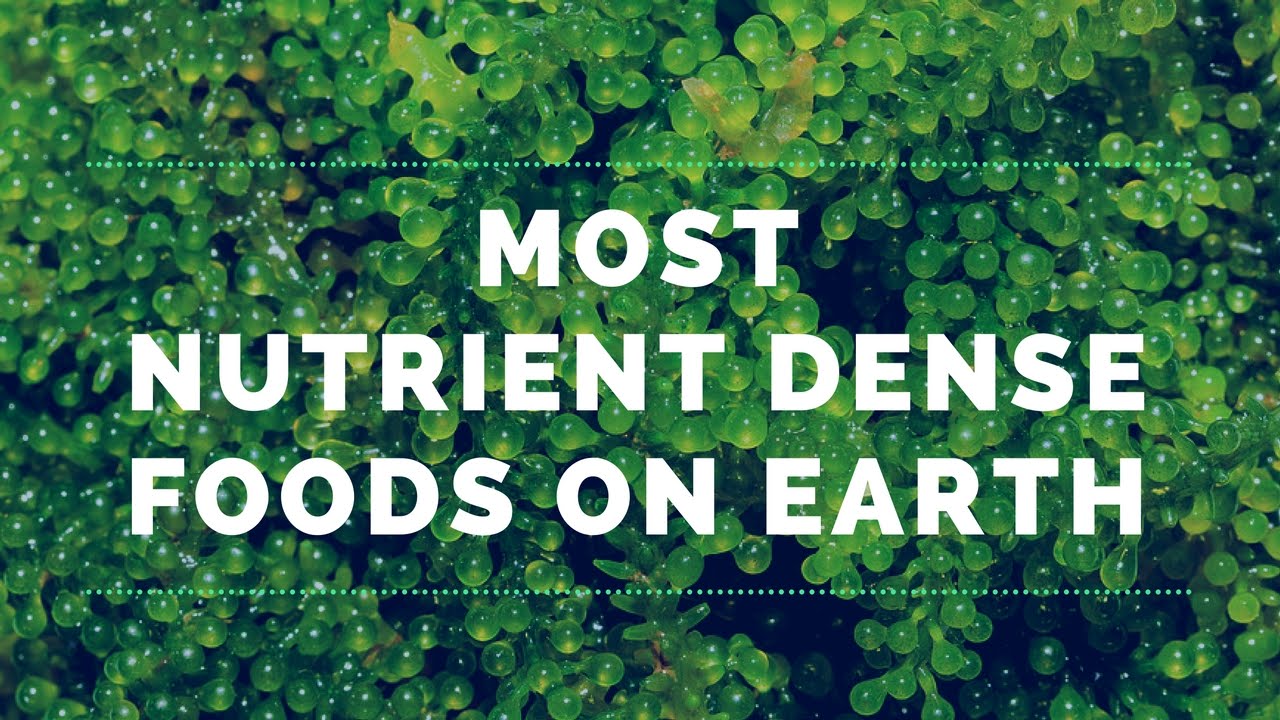4 of the Most Nutrient Dense Foods on Earth

In order to maximize the amount of nutrients we take in, we need to eat foods that carry the greatest amount and variety of nutrients.
Here are 4 of the most nutrient dense foods on the planet.
1. Potatoes
Potatoes are nutrient-jammed and really one of the world’s most perfect foods.
A single large potato contains lots of Potassium, Magnesium, Iron, Copper and Manganese… with plenty of vitamin C and most of the B vitamins.
They contain a little bit of almost every nutrient we need and there have been accounts of people living on nothing but potatoes for a long time.
They are also one of the most fulfilling foods in existence. When researchers compared the “satiety value” of different foods, boiled potatoes scored higher than any other food they measured.
If you cook the potatoes and then allow them to cool afterwards, they also form large amounts of resistant starch, which is a fiber-like substance with many additional health benefits.
2. Blueberries
Although not as high in vitamins and minerals as vegetables (calorie for calorie), the antioxidant content is where these tiny fruits really shine.
Blueberries are loaded with powerful antioxidants that protect our bodies from damage by unstable molecules called ‘free radicals’.
In fact, they contain the highest antioxidant capacity of ALL commonly consumed fruits and vegetables.
The fact that they are colorful and taste good, and that the frozen ones are still very healthy, is just a bonus.
3. Salmon and Tuna
Not all fish is created equal. Salmon, tuna and other fatty types of fish contain the greatest amount of Omega-3 fats, which are extremely important for the optimal function of your body.
Other than omega-3s, fatty fish also pack a massive amount of other nutrients. For example, salmon is rich in high quality protein and contains a lot of vitamins and minerals… including large amounts of Magnesium, Potassium, Selenium and all the B-vitamins.
It’s a good idea to eat fatty fish at least once or twice a week, to get all the Omega-3s that your body (and brain) desperately need.
In fact, studies suggest those who eat fatty fish regularly have a lower risk of heart disease, and maybe even dementia and depression.
4. Shellfish
Clams, oysters and various other types of shellfish are among the most nutritious foods available, yet people rarely eat them.
Clams are among the best sources of vitamin B12 in existence, with a 100 grams of clams supplying over 16 times the RDA or recommended dietary allowance.
Oysters are also incredibly nutritious; 100 grams of oysters supplies 6 times the RDA for Zinc, 2 times the RDA for Copper, along with large amounts of B12 and Vitamin D.
Shellfish can also be considered a great food for people who want to be as close to vegetarian as possible, while also getting most of the benefits of consuming animal foods. Because shellfish are considered non-sentient, which means they don’t have the capacity to feel or perceive any sensations.
Studies mentioned in video:
Study 1: http://www.ncbi.nlm.nih.gov/pubmed/7498104
Study 2: http://www.ncbi.nlm.nih.gov/pubmed/16825676



![[ID: Hx_A0iLhdr8] Youtube Automatic](https://bizimtube.com/wp-content/uploads/2021/03/id-hxa0ilhdr8-youtube-automatic-236x133.jpg)
![[ID: lp7w0UmpuIs] Youtube Automatic](https://bizimtube.com/wp-content/uploads/2021/03/id-lp7w0umpuis-youtube-automatic-236x133.jpg)
![[ID: s2-7T1TH-lY] Youtube Automatic](https://bizimtube.com/wp-content/uploads/2021/03/id-s2-7t1th-ly-youtube-automatic-236x133.jpg)
![[ID: b_lakC9M4UQ] Youtube Automatic](https://bizimtube.com/wp-content/uploads/2021/03/id-blakc9m4uq-youtube-automatic-236x133.jpg)
![[ID: r44yl6nPONs] Youtube Automatic](https://bizimtube.com/wp-content/uploads/2021/03/id-r44yl6npons-youtube-automatic-236x133.jpg)
![[ID: pAwto1YQjA8] Youtube Automatic](https://bizimtube.com/wp-content/uploads/2021/03/id-pawto1yqja8-youtube-automatic-236x133.jpg)
![[ID: XETG8azHiv4] Youtube Automatic](https://bizimtube.com/wp-content/uploads/2021/03/id-xetg8azhiv4-youtube-automatic-236x133.jpg)
![[ID: f3G_-S_2HUk] Youtube Automatic](https://bizimtube.com/wp-content/uploads/2021/03/id-f3g-s2huk-youtube-automatic-236x133.jpg)
![[ID: G8oWns54snA] Youtube Automatic](https://bizimtube.com/wp-content/uploads/2021/03/id-g8owns54sna-youtube-automatic-236x133.jpg)
![[ID: s0lIFXhu6aw] Youtube Automatic](https://bizimtube.com/wp-content/uploads/2021/03/id-s0lifxhu6aw-youtube-automatic-236x133.jpg)
![[ID: 4UTd2Ev8eYg] Youtube Automatic](https://bizimtube.com/wp-content/uploads/2021/03/id-4utd2ev8eyg-youtube-automatic-236x133.jpg)
![[ID: RKBGBjVJBxQ] Youtube Automatic](https://bizimtube.com/wp-content/uploads/2021/03/id-rkbgbjvjbxq-youtube-automatic-236x133.jpg)